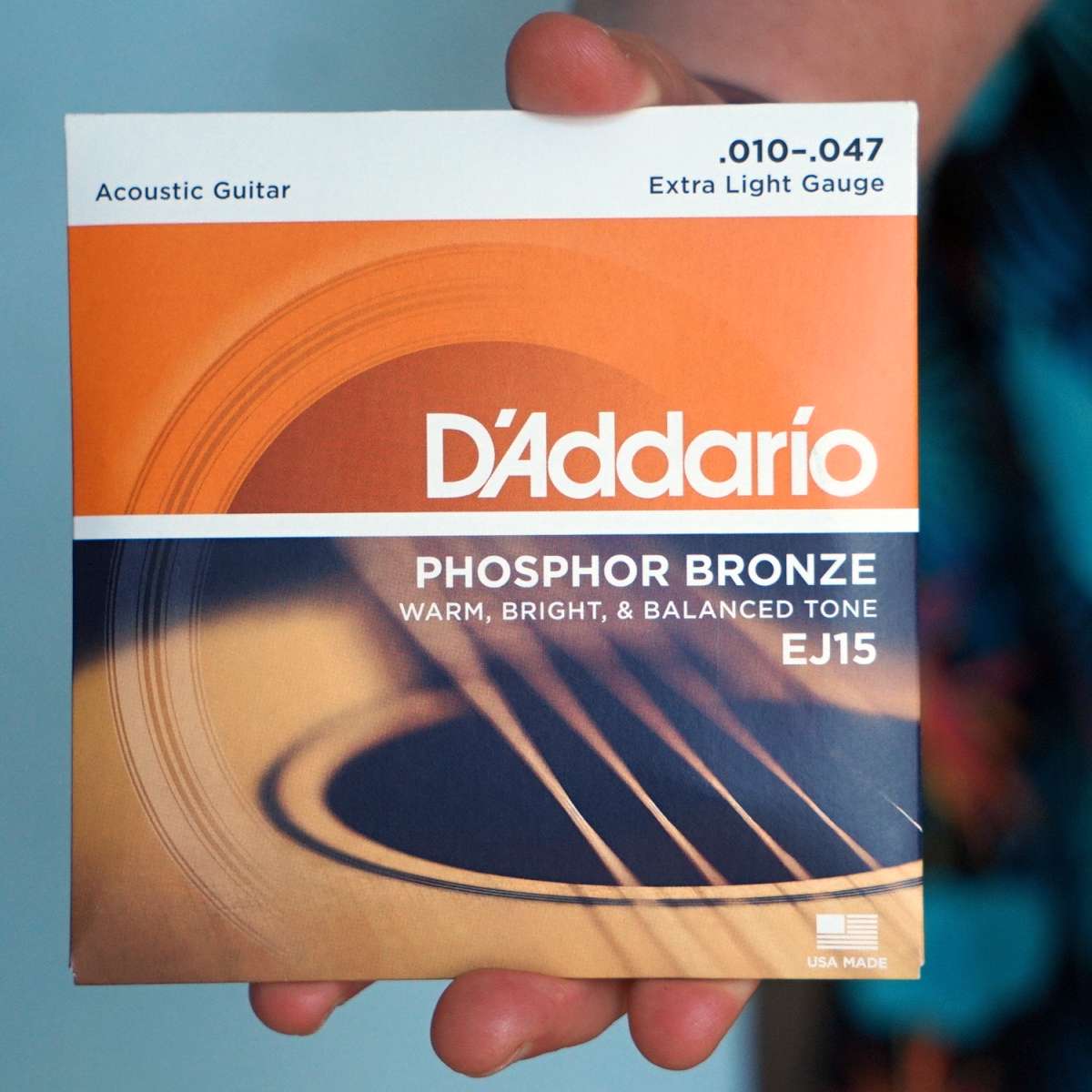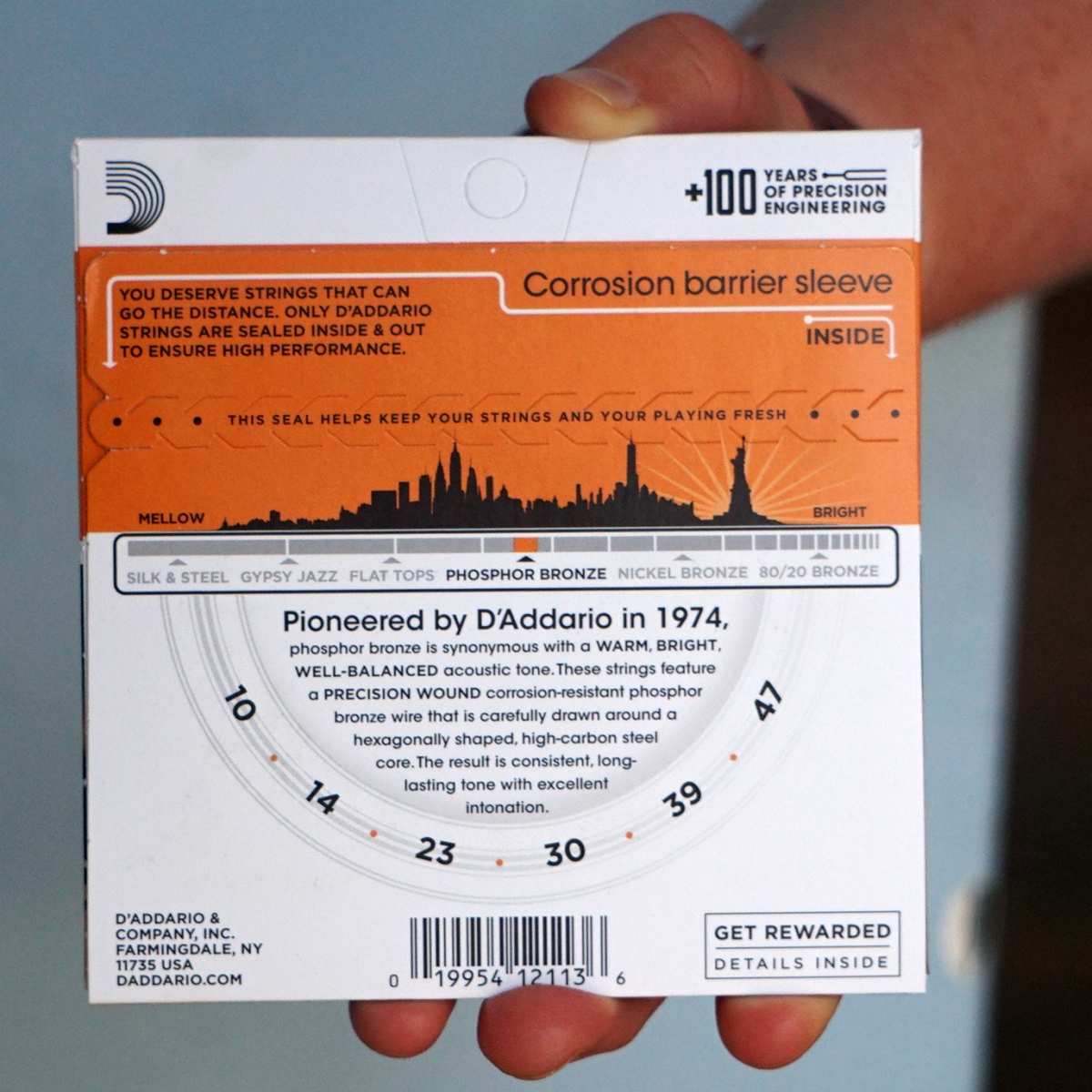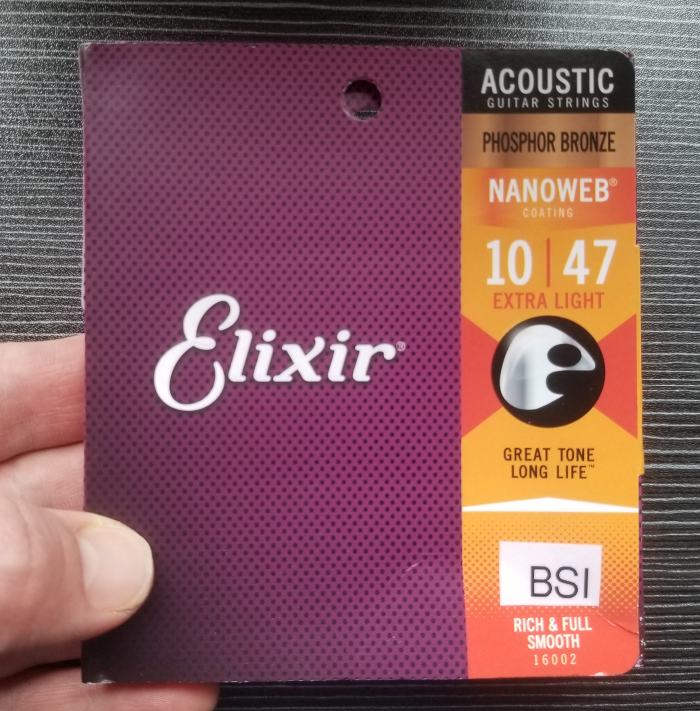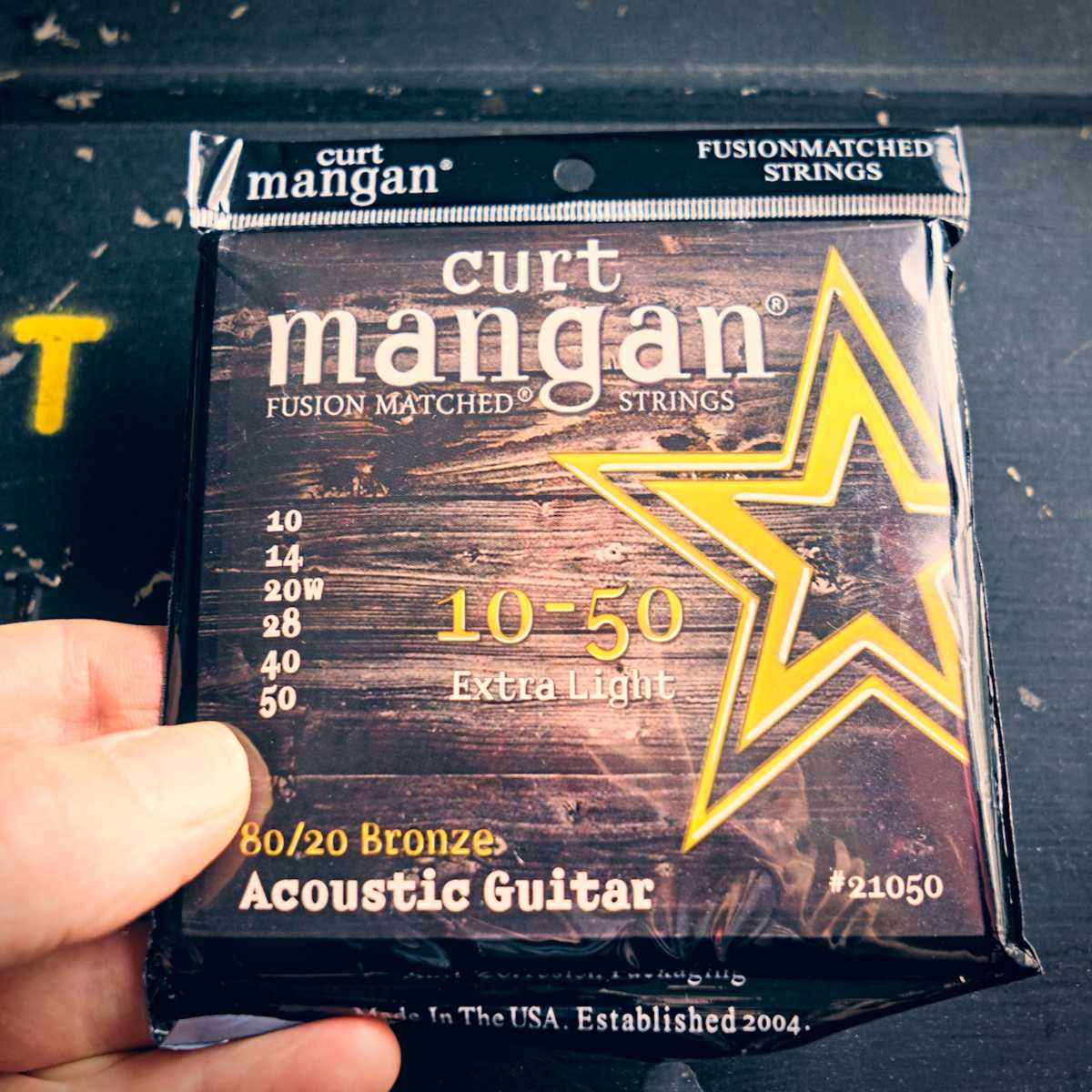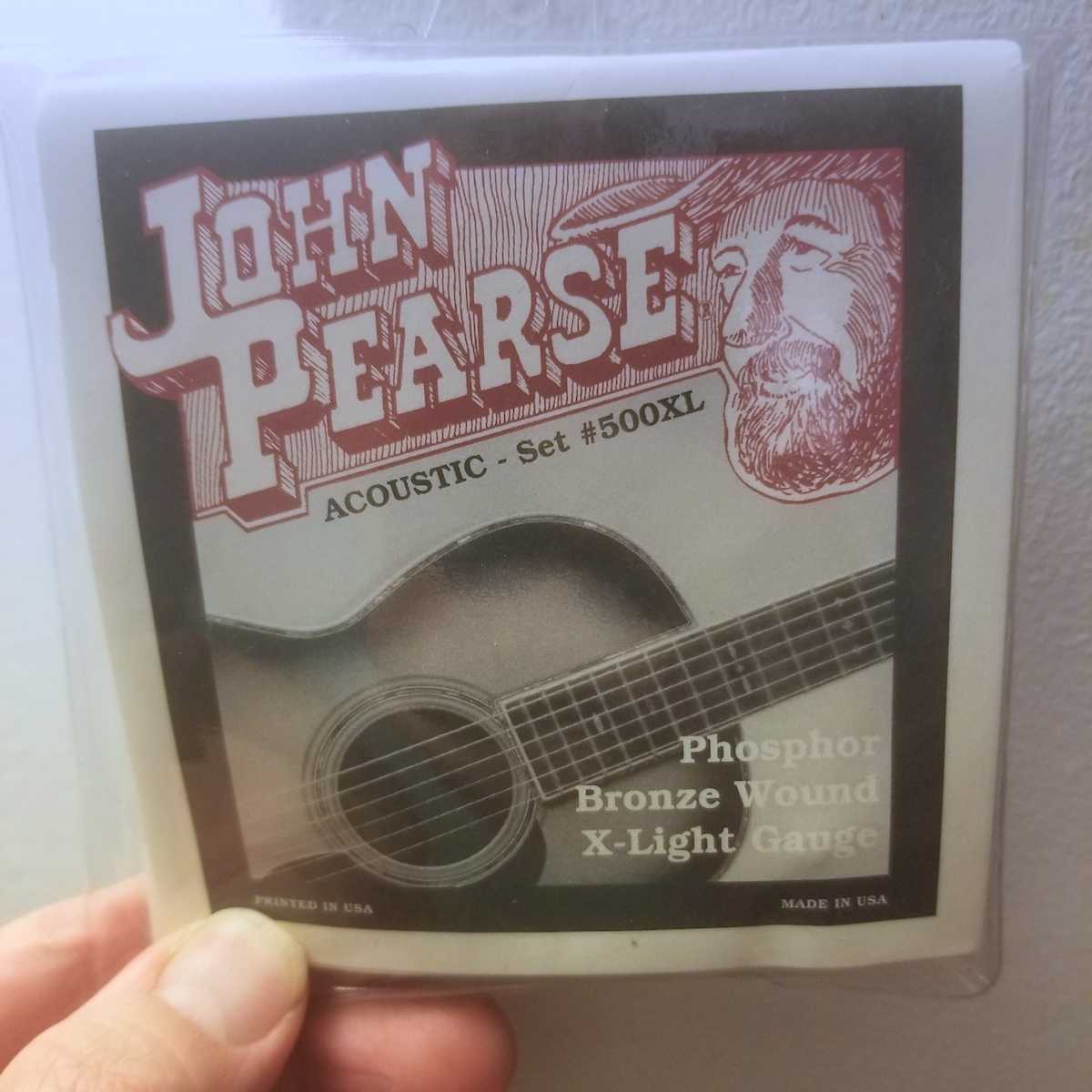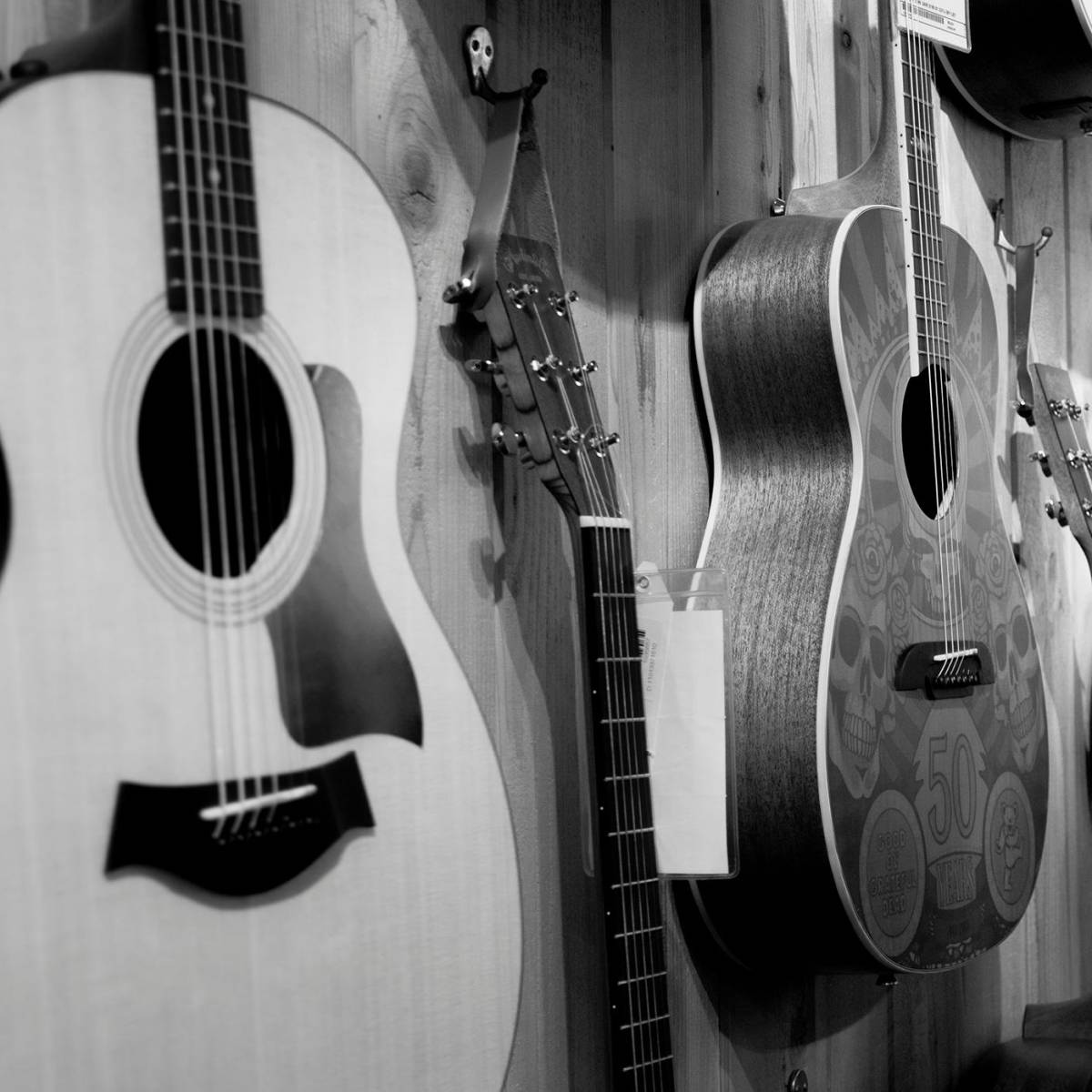If you're a fingerstyle player and it's time for you to buy a new set of strings for your acoustic guitar, this is the guide for you.
Wondering what the best acoustic guitar strings are for fingerpicking? I'm going to share with you my pick of the 5 best acoustic guitar strings for fingerstyle guitar.
I've been playing fingerstyle guitar on an acoustic steel string guitar for years and years. During this time I've tried dozens of different brands and string gauges.
And now, I'll share with you my top pick for acoustic guitar strings specifically for fingerstyle guitar. So if you're a finger picking enthusiast looking for a new set of acoustic guitar strings, let's dive right in.
This post contains affiliate links. When you purchase using an affiliate link, I may earn a small commission without any extra cost to you.
- What Are The Best Acoustic Guitar Strings for Fingerpicking?
- Understanding Acoustic Guitar Strings
- Best String Gauge For Fingerstyle
- 1. D'Addario EJ15
- 2. Elixir Acoustic Phosphor Bronze
- 3. DR Strings Veritas
- 4. Curt Mangan Fusion Matched
- 5. Ernie Ball Earthwood Silk & Steel
- Acoustic Guitar String Sets You Should Avoid
What Are The Best Acoustic Guitar Strings for Fingerpicking?
After trying out many sets of strings over time, I can truthfully say that the best set of strings you can buy for fingerstyle guitar are hex-wound, extra light gauge phosphor bronze strings. And I'll explain what that all means below (basically, I like modern technology) but if you want my top pick, it's a set of EJ15 Extra Light Gauge strings by D'Addario.
Perhaps you're not convinced? To give you a better understanding of how to choose your next set of guitar strings, we'll first discuss how acoustic guitar strings are constructed.
Understanding Acoustic Guitar Strings
In most acoustic guitar guitar string sets, the 1st and 2nd strings are made of plain steel, and the wound strings are made of a metal wire (usually bronze) wound around a hexagonal core. The primary difference between acoustic and electric guitar strings is the presence of a wound 3rd string and the metal winding.
A Brief History of Acoustic Guitar Strings
Before the advent of modern guitar construction techniques, guitarists had to use natural materials such as silk or gut for string construction. Then, at the turn of the 20th century, string manufacturers began to incorporate synthetic materials such as nylon and steel into string production, forever changing the guitar.
The techniques that go into manufacturing acoustic guitar stings have been essentially standardized since the mid-1970s. Nowadays, the vast majority of strings use modern materials, and organic strings are more of a specialty item.
Metals Used In Acoustic Guitar Strings
In string sets designed for acoustic guitar,the lower guitar strings (the 6th to the 3rd) consist of a steel core wrapped in a copper alloy wire. The first and second strings are unwound and made of plain steel, just like for the electric guitar.
In the 1930s, string manufacturer John D'Addario standardized the 80/20 bronze alloy as the metal used in string winding. 80/20 bronze is a mixture composed of 80% copper and 20% zinc, also known as brass.
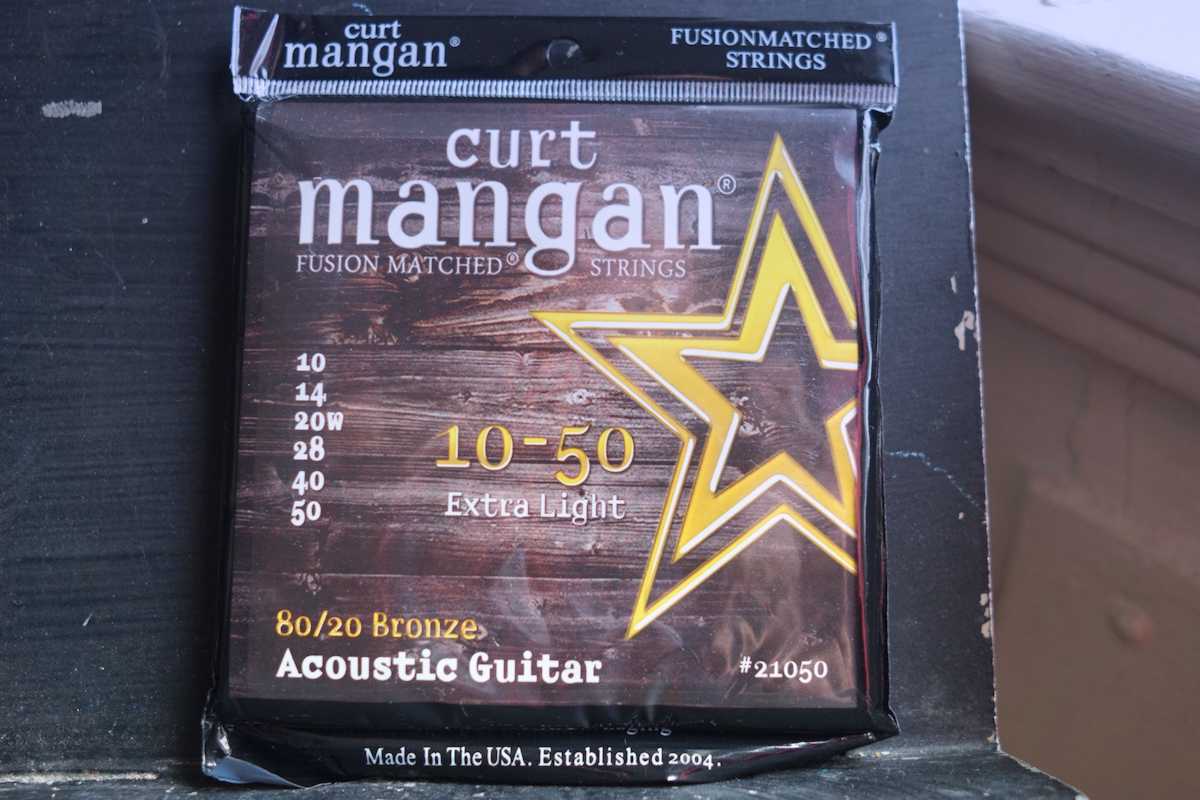
Then, in 1974, the D'Addario brothers (John and Jim) standardized the phosphor bronze format, an alloy containing a higher amount of copper.
Phosphor bronze strings consist of a steel core wound with an alloy of 92% copper, 7% tin, and 1% phosphorus, which gives the name 92/8 or simply 8%. Placed side-by-side, you'll notice that brass-wound strings (i.e. 80/20 bronze) have a duller appearance than phosphor bronze.
Anatomy of an Acoustic Guitar String
Originally, guitar strings consisted of metal winding on a round core made of high carbon steel. This resulted in a less flexible string since nearly 100% of the winding comes into contact with the core.

Today, the vast majority of folk guitar string manufacturers use a hexagonal core. This choice is explained by the greater flexibility of a string with a hexagonal core, thus providing better longevity.
Best String Gauge For Fingerstyle
For fingerpicking guitar, I recommend that you stick to the "light" gauges, preferably extra-light. I do not recommend medium gauge strings for finger picking.
The gauge refers to the thickness of the string and the corresponding tension that the string exerts on the guitar. You can refer to the gauge by its name (e.g., light gauge) or the numbers (e.g., 11-48) which refer to the thickness of the string.
Here are the three string gauges for acoustic steel string guitars that I recommend for fingerpicking.
| String | Extra Light | Custom Light | Light |
|---|---|---|---|
| 1st String | .010 | .011 | .012 |
| 2nd String | .014 | .015 | .016 |
| 3rd String | .023 | .023 | .025 |
| 4th String | .030 | .032 | .032 |
| 5th String | .039 | .042 | .042 |
| 6th String | .047 | .052 | .053 |
The thickness of each string is in inches. Note that light gauge strings for bronze or copper alloy strings are thinner than the corresponding gauge for nickel wound strings. This is owing to the fact that bronze is a heavier alloy than nickel, which is a pure element.
Now that we understand how to distinguish between the different types of acoustic guitar strings, let's look at choosing the best guitar strings for fingerstyle guitar.
1. D'Addario EJ15
For fingerstyle guitar, I recommend using a set of Extra Light Phosphor Bronze Strings by D'Addario.
But let's continue with some more excellent options for acoustic guitar strings sets that you should try if you want to explore a different sound or playing experience.
Perhaps you are tempted to branch out and try some different brands of strings. Before experimenting, make sure you always have an extra set of strings for any mishaps, as some of these brands are more fragile than my recommended options.
Here are some strings you may be interested in trying as you pluck away on your acoustic guitar.
2. Elixir Acoustic Phosphor Bronze
The Elixir string brand from W.L. Gore focuses heavily on string coating technology to enhance the lifespan of your strings. If you don't change your strings very often, the higher price point on these strings may be worth the extra investment.
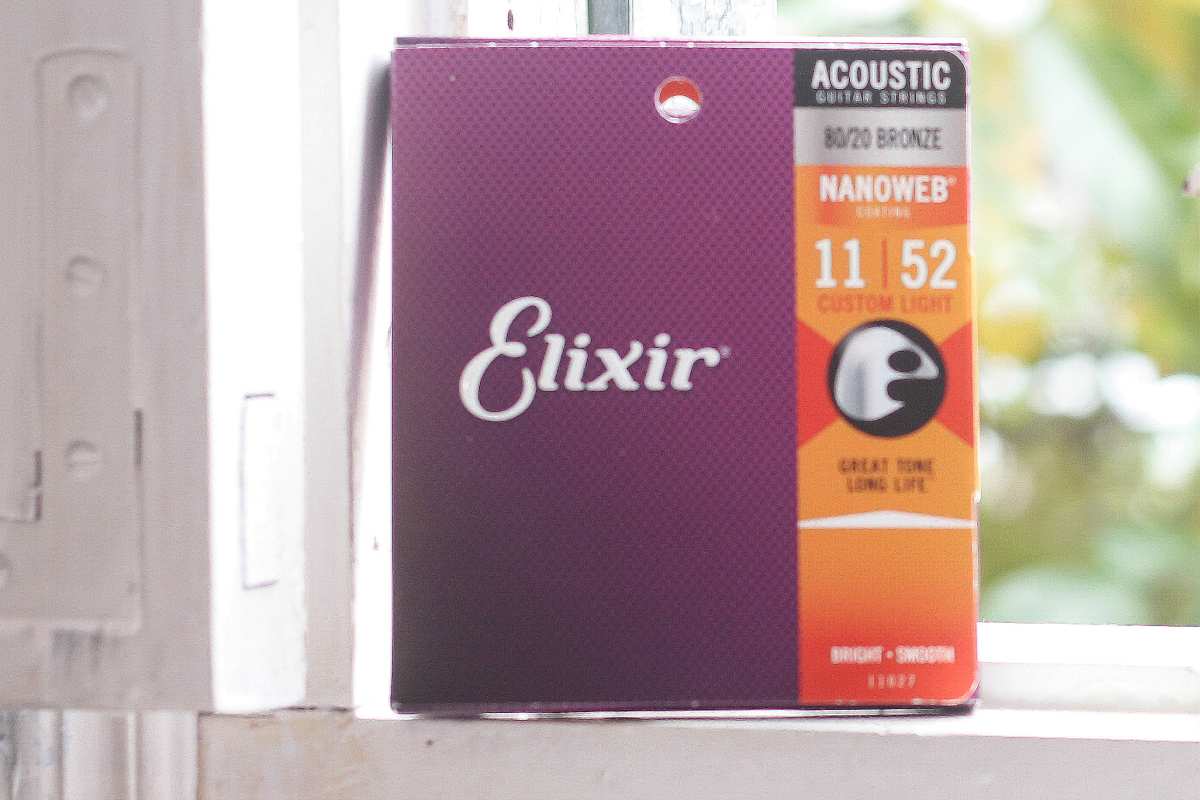
Elixir strings boast a thinner coating for 80/20 bronze strings and a thicker coating for phosphor bronze strings. I don't think the coating affected the sound of my guitar, so these strings are a solid bet for fingerstyle.
3. DR Strings Veritas
This New Jersey based company holds its own through its innovative marketing efforts. Whether it's boasting of handmade guitar strings or offering bonus strings in each set, DR Strings certainly offers good value for money.
Once you open your box of DR Strings, inside you'll find detailed instructions on how to crimp the string near the tuning pegs to extend the life of the string. I followed these instructions to the letter myself, but I must admit that I did not notice a big difference.
4. Curt Mangan Fusion Matched
There's no denying the innovation and passion that Curt Mangan brings to his guitar strings. Not only does he emphasize his unique string winding technique, he also offers strings wound with nickel, silver, or steel.
Handmade in Colorado, Curt Mangan strings offer a vintage, old-school sound. Though uncoated, they maintain great tone and are extremely durable (just like Mr. Mangan himself).
5. Ernie Ball Earthwood Silk & Steel
I'll admit that I have a preference for extra-light steel wound strings and I'm not a huge fan of silk core, whether it's for steel or nylon strings. But this set of strings by Ernie Ball is definitely worth a look if you're looking for the lightest possible option on your steel string acoustic. Just make sure you get more than one set, because these strings are definitely going to wear out a lot faster than the Elixir brand.
While the set of John Pearse strings certainly were easy to play and their tone were balanced, the lack of durability was definitely a concern. If you don't plan on changing your strings very often, this could be a factor to consider.
Acoustic Guitar String Sets You Should Avoid
Unfortunately there are some string sets that just aren't well suited for fingerstyle guitar.
Curt Mangan Monel Round Core Strings
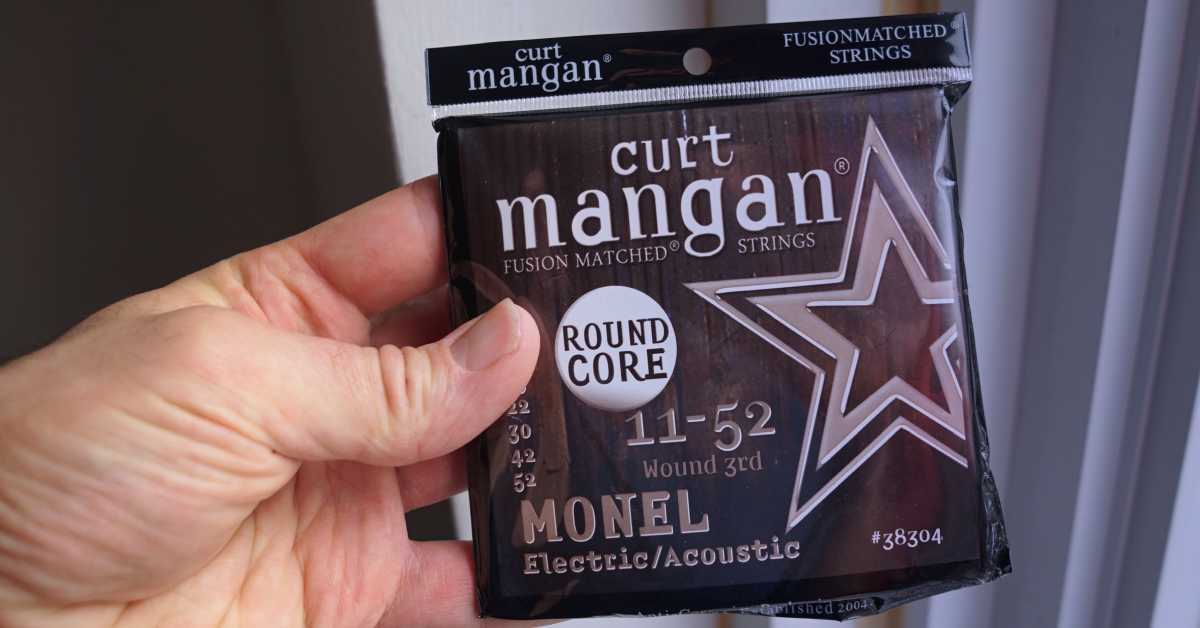
If you want to experiment with different gauges or string alloys, Curt Mangan has what you need. I appreciate his detailed descriptions, whether it's for nickel-plated steel, monel steel or pure nickel.
After having tried the monel steel strings on my acoustic guitar, I concluded that the gauge is a tad too heavy for fingerstyle guitar. This, along with the round core, does add a noticeably stiff feel to the strings, which is probably a plus if you are using a pick.
John Pearse Acoustic Phosphor Bronze Strings
As a Celtic music aficonado myself, I was immediately drawn to the story of John Pearse, a folk musician who hailed from the UK and who grew up in Wales.
Upon purchase of a set of John Pearse strings, however, I noticed that the durability of these strings was much less than comparable brands. Just a few weeks after placing them on my guitar, they already showed signs of discolouration.
If you're looking for the best acoustic guitar strings for fingerstyle, you can't go wrong with any of the options presented here. As you improve as a fingerstyle guitarist, I encourage you to try something other than phosphor bronze strings, to see what gives you the best experience with your guitar.
I hope I've made your choice for your next set of acoustic guitar strings a little easier.

